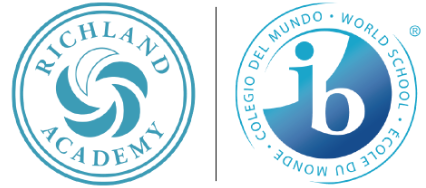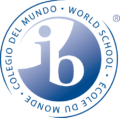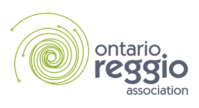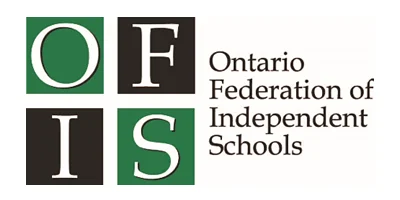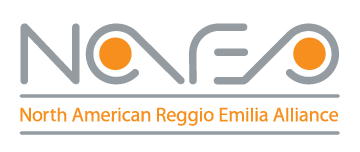As we move into what is being called the “creative” or “conceptual” age, success in a few narrow core subjects will no longer prepare students for this world.
To provide youth with the tools and knowledge to successfully handle future challenges and opportunities, a change in educational philosophy is necessary. Learning and thinking must be considered subjects in and of themselves if we are to adequately prepare students for their futures. Students need opportunities to work collaboratively and think critically and creatively about ideas and issues across a range of disciplines, while developing a solid academic foundation and enhancing their intelligences, including “soft skills” such as understanding, empathy, collaboration and communication skills. Schools must grant students the right to take ownership of their work and engage them in the decision-making process, so that they may build their intellectual character while exploring ideas and solutions.
Twenty-first century education allows more freedom to learn, so that students understand in the manner that suits them best. The use of different learning materials allows students with various principal learning styles to absorb information in the most beneficial way. For example, when young students first learn about numbers or letters, they may understand best by actually tracing the numbers or letters out in shaving cream, writing them on the chalkboard or whiteboard, forming them out of clay or sand, singing about them, or even jumping up and down a number or alphabet line! The availability and variety of “real” materials allows children to learn in a way that really sticks. In this way, 21st-century learning is more experiential, flexible, diverse, creative, challenging, and much less restricted than the paper-and-pencil approach of those schools still stuck in the past. It addresses the inevitable change that is necessary for improvement in a rapidly-changing world and connects the classroom to the greater community.
If students are to succeed with a global mindset, they need opportunities to experience the world, develop a sense of shared citizenship and become experts in 21st-century literacies, including: multicultural, media, information, emotional, ecological, financial and cyber literacies. Multiple perspectives take the educational experience beyond the classroom to cultivate real-world application. For example, acquiring ecological knowledge not only helps children identify with nature and the ecosystem, it makes them aware of their surroundings and may stimulate opportunities for an increasingly sustainable world. Hands-on learning gives students the opportunity to experience nature and the environment: to touch, hear, see, smell and sometimes even taste the different elements. In the Reggio Emilia educational philosophy, a progressive, child-centred and project-based inquiry model, the physical environment is fundamental to learning and is regularly referred to as the child’s “third teacher.”
In “perceiving” nature, one can better understand how a caterpillar turns into a butterfly, explore the intricacies of a spider’s web or discover a flower’s journey from seed to bud. For instance, at Richland Academy, a private elementary school in Richmond Hill, Ontario that has embraced the Reggio Approach to inquiry learning, students are provided with meaningful and relevant opportunities to explore, investigate, discover, collaborate and communicate with others in an engaging and experiential learning environment. Students regularly go on field studies and nature hikes in their local community, often leading to long-term and open-ended projects initiated by the children. In this way, learning becomes real for students and they are motivated to learn because they are fully engaged and truly enjoy what they are doing.
Learning in the 21st century is dependent on the information students obtain and ultimately transform. Experiential learning, or “learning by doing,” is a non-traditional approach in which students are actively engaged in experiences that will reinforce lessons and teach skills that will have a lasting impact and, thus, help them become better learners. Children are naturally curious and learn best by investigating and exploring the world around them. By using their senses, children are able to experience and cultivate interactions with their surrounding environment. Experiential learning permeates every part of the curriculum. For example, in exploring the life-cycle of a butterfly, students may engage in writing, movement, exploration and reflection of their observations by examining live butterflies in their natural habitat, researching species in books and on the computer, painting watercolours of butterflies, estimating how long it might take for a cocoon to become a butterfly, discovering symmetry, and even imagining what it would be like to be a butterfly by dancing or adding insights to their reflective journals. Documentation through the Reggio approach then allows them to look back at their thought processes and re-examine their ideas.
Embracing the Shift in Schooling
Schools need to embrace the inevitable shift in schooling, so that they may better prepare our young people by creating a remarkably different way of learning, one that can bring forth innovation, prosperity, meaningful work and security. Therefore, in order to prepare students for higher learning and growth in a technologically-enriched and globalized world, schools must evolve from their traditional model of education to a more active, child-centred approach to learning. The Reggio-inspired approach to inquiry learning recognizes a child’s innate desire to explore and investigate as the very stepping stone for a successful and relevant education – an education rooted in inquiry, motivated by desire and actualized through experience. It promotes freedom in learning, and develops active student participants who are motivated to become life-long learners. Reggio can be applied to all subject areas: For example, using Reggio in math compels students to think about the logic behind the math instead of just memorizing the formula. In this way, they can simply work out a few problems, instead of pages and pages of their workbook, because they truly grasp the concepts.
Despite some of the challenges that face our children and society as a whole, such as famine, poverty, and environmental and social issues, there are opportunities to prepare them for new discoveries and innovations, as well as emerging modes of communication and technology. With this enhanced model of learning, we can one day look forward to today’s children uncovering new discoveries and developments in terms of medical advances, energy sources, modes of communication, and restoration of environmentally-ravaged areas.
To move in this direction, schools must rapidly transform from the information age, where the curriculum is textbook-driven and facts and figures are memorized and regurgitated, to a new, transformed era of schooling, where knowledge is constructed through research and application and connected to previous knowledge, interests, talents and passions, according to 21st Century Schools, a company which helps educators create schools and classrooms for the 21st century with professional staff development and curriculum design. Students need to be in a place where learning is supported and enriched through an in-depth program that is interdisciplinary, project-based and research-driven, says 21st Century Schools; where projects are student-centred, following their interests, and often revisited again and again to add new insights and generate deep and meaningful thinking; where teachers – as collaborators and guides – find creative ways to stimulate their students’ natural curiosities. In this way, students will become active participants in their learning, thus, owning and directing their own education while building the skills they will need for life-long learning.
Renewed Vision of 21st Century Education
A renewed vision of education in the 21st century requires reforming or redesigning our schools, our curriculum, and how we are teaching the children of today. We need to re-think our learning spaces because these matter in how children learn. The education system must focus on how students are acquiring information, not on what they are learning, as education is continuously evolving. Schools of the past were highly biased toward students who learned best by book-and-lecture method and achieved high scores in the standard literacies of reading and math. We need to lean away from this outdated, factory model of learning – a model based on constriction, control, acquisition of information and limited body of knowledge – to an active, experiential form of learning that is integrated and interdisciplinary, outcome-based, research-driven, and student-centred, according to 21st Century Schools. Passionate educators must find inventive ways to pique children’s interests and curiosities and encourage them to dialogue. If you are discussing the value of money, why not engage the children in concrete, hands-on learning: let them hold real coins and bills, teach them about different currencies from around the world, perhaps even let them create their own classroom shop, where they can construct and price objects to sell. By embracing experiential learning, learning becomes real for the child and encourages them to question, inquire and re-think their ideas.
Knowledge should be presented as limitless and bountiful. The recommended model is creative and invites learning communities to think “outside of the box.” As educators we need to foster personal inquiry, integrity, sense of social responsibility and appreciation for learning. Students learn best by actively engaging in hands-on learning, thus, truly experiencing their education. It is indeed important to provide an environment that suits children’s different learning styles and keeps them captivated in the learning process. This will help develop a love of learning that transcends the boundaries of the school. Twenty-first century learning is education for life. To remain avant garde, we can never be complacent about our achievements; we cannot afford to stand still. As our education system continues to reform, we need to be committed to maintaining a current and relevant curriculum in order to support our future generation of leaders. Individuals, who will one day be in a position to cultivate relationships around the world and create change, will assuredly make our world a better place.
Imagine the possibilities that will take us all to the next level. . . .
Prepared by: Melissa M. Mirabelli, Marketing & Events Coordinator

